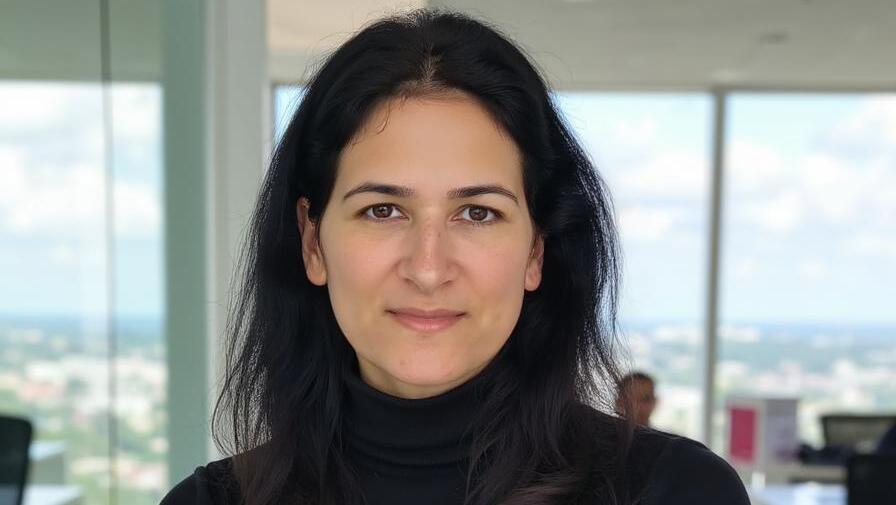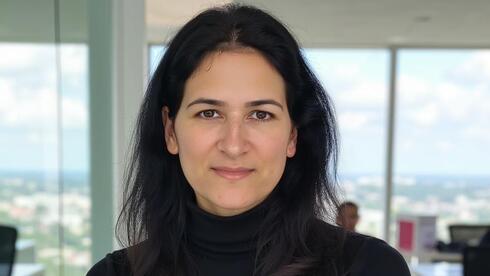
HR in the AI era
“While AI is incredibly powerful, it can also introduce some challenges,” says Akamai
Akamai has been fairly conservative in its approach to leveraging AI within HR, citing inclusion as a particular concern.
“We view AI as a great productivity enhancer, and are experimenting with various AI-powered tools and solutions across all areas of our business,” stated Akamai’s Israel HR Director, Sivan Baron. “That said, while AI has created efficiencies across certain tasks, we are not yet seeing it fully replace human labor.
CTech’s "HR in the AI Era" series explores how the AI revolution is impacting the workforce across Israeli high-tech companies. In this series, we uncover the effects (both personal and professional) that this technology shift has had on Startup Nation.
“Akamai's commitment to AI extends beyond HR, influencing its overall business strategy,” Baron added. “The company is focused on AI in three areas: using AI as a tool to improve products as well as the customer and employee experience, supporting AI applications on our platform, and defending against AI threats.”
You can read the entire interview below.
Company name: Akamai
Your name and title: Sivan Baron, Israel HR Director
Names of founders and upper management: Founders: Tom Leighton and Danny Lewin
Upper Management: Dr. Tom Leighton (CEO & Co-Founder), Adam Karon (COO & General Manager, Cloud Technology Group), Ed McGowan (EVP, Chief Financial Officer), Aaron Ahola (EVP, General Counsel & Corporate Secretary), Dr. Robert Blumofe (EVP & CTO), Paul Joseph (EVP, Global Sales and Services), Kim Salem-Jackson (EVP, Chief Marketing Officer), Mani Sundaram (EVP & GM, Security Technology Group), Anthony Williams (VP & CHRO), and Melanie Francis (VP & CoS, Office of the CEO)
Year of founding: 1998
Investment stage: Public company
Total investment to date: N/A
Field of activity: Cyber Security and Cloud Computing
Number of employees: 11,000 globally (750 in Israel)
Office location: Israeli office is located in Tel Aviv’s ToHa building, with global headquarters in Cambridge, Massachusetts.
Number of open positions: 25 in Israel
On a scale of 1-10, how much does the AI revolution disrupt your company operation in general, and the HR department specifically?
4
Akamai's commitment to AI extends beyond HR, influencing its overall business strategy. The company is focused on AI in three areas: using AI as a tool to improve products as well as the customer and employee experience, supporting AI applications on our platform, and defending against AI threats.
Within HR, Akamai has been fairly conservative in our approach to leveraging; primarily as we recognize that while AI is incredibly powerful, it can also introduce some challenges, particularly around inclusion. We do use some AI-powered features that are native in our HR tools and platforms, and are piloting other tools and programs.
What interesting AI tools do you and your staff use in employee management/recruitment?
We have recently launched a new cloud-based HR solution that underpins many aspects of our HR tools. The solution includes some native AI features, such as offering prompts to help employees with objective setting, and we feel it’s a strong foundation for us to leverage AI capabilities across the HR ecosystem.
On the recruiting side, we do not rely on AI for candidate matching, but we have leveraged the capabilities with a CRM, as well as a job description library, and we also use a tool that helps us evaluate technical candidates during the interview process. It incorporates AI powered plagiarism detection, Machine Learning to scan for unauthorized tool usage, tracking of copy/pasting of code and also monitoring tab switching. The end goal is to help ensure a fair assessment of potential candidates.
Additionally, we have two pilots underway: A chat bot that provides AI ‘neuro intelligence’ for managers and a tool that guides users through specific steps to execute HR tasks.
We continue to explore and evaluate HR specific options and anticipate expanding our AI enabled capabilities in the future.
Related articles:
In which roles or tasks within your company has AI already begun to replace human labor (if at all)?
We view AI as a great productivity enhancer, and are experimenting with various AI-powered tools and solutions across all areas of our business. That said, while AI has created efficiencies across certain tasks, we are not yet seeing it fully replace human labor.
What are the two major challenges you are coping with these days?
We’re keeping a close eye on global economic and political challenges. As we noted during our recent earnings call, we’ve taken steps to minimize the impact of tariffs on our business, however, there is concern among some of our customers about a possible recession.
Additionally, we are very focused on security and supporting and protecting our customers as cyber criminals adopt AI for their own benefit. The cyber threat landscape is shifting rapidly, and we are partnering with our customers to refine their security posture to protect them against AI threats.
Have you experienced workforce-related challenges due to the war, and are you still feeling the impact of the security situation on your human resources?
The war brought significant workforce challenges that continue today. Many employees and their partners were called to serve, which created resource gaps and demanded ongoing flexibility and adaptation.
Despite this, our teams showed incredible resilience, ensuring continuity in both product development and operations. Akamai offered tailored support, resilience workshops, and expanded mental health resources. Leadership remained closely involved, and we continue to prioritize flexibility, well-being, and personalized support.
Have you made changes to your workforce following the increased use of AI tools, both in terms of headcount and internal shifts between departments?
Akamai is accelerating its presence in the AI space and now includes AI solutions as part of its broader portfolio. This includes an AI inference solution on our public cloud, as well as multiple security solutions that leverage various forms of AI. In line with this shift, several departments are realigning their focus toward AI, with some roles transitioning into AI development and support positions.
How does the global market uncertainty affect your workforce, in terms of employee numbers or departmental reallocations? Are you scaling your workforce up or down in different regions around the world?
Akamai may be headquartered in the US, however, we are a global company in every sense of the word. With employees in 33 countries, we have teams in all geographies who are developing our products and engaging and supporting customers, and we don’t have any plans to change that. Akamai continues to grow its global headcount each year and we don’t see that changing.
Do you estimate that in 2025–2026 you will increase or decrease the number of personnel? Explain why.
Akamai has seen steady headcount growth year over year, now sitting at around 11,000 employees worldwide, and we expect that trend will continue. As we work to solidify our position as the cybersecurity and cloud computing company that powers and protects business online, we will continue hiring around the world.
